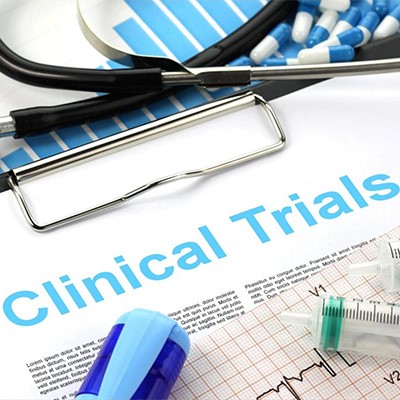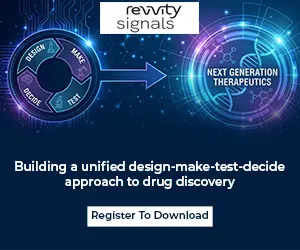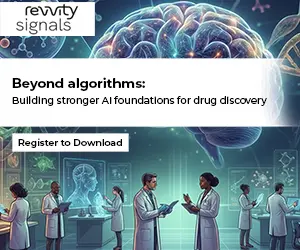The Future of Drug Discovery: Breakthrough Technologies in America
Kate Williamson, Editorial Team, Pharma Focus America
The future of drug discovery in America is undergoing a revolutionary transformation driven by breakthrough technologies. From AI and machine learning accelerating candidate identification to CRISPR gene editing enabling precise interventions, single-cell sequencing revealing cellular nuances, organ-on-a-chip enhancing testing precision, and virtual clinical trials revolutionizing research accessibility, these innovations are shaping a new era in pharmaceutical development.
Introduction:

In the ever-evolving realm of healthcare, the landscape of drug discovery is experiencing a revolutionary overhaul driven by groundbreaking technologies in the United States. The pharmaceutical industry is undergoing a paradigm shift, marked by advancements spanning artificial intelligence (AI) and machine learning to cutting-edge genetic and molecular techniques. This article delves into the pivotal breakthrough technologies that are shaping the future of drug discovery in America.
Artificial Intelligence and Machine Learning in Drug Discovery:

Artificial Intelligence (AI) and Machine Learning (ML) are fundamentally reshaping the landscape of drug discovery, emerging as pivotal game-changers. These transformative technologies excel in analyzing vast datasets, encompassing genomic, chemical, and clinical information, and identifying intricate patterns that elude traditional methods. Their capacity to predict potential drug candidates with remarkable efficiency accelerates the drug development process, significantly reducing the time and resources required for discovery. Pioneering companies such as Atomwise and BenevolentAI leverage AI to not only identify novel drug candidates but also repurpose existing drugs for new therapeutic applications, showcasing the versatility of these technologies. By streamlining the identification of promising compounds and offering insights into drug repurposing, AI and ML are at the forefront of a paradigm shift in the industry. The ability to expedite drug development, coupled with the precision in target identification, holds the promise of ushering in a new era of more efficient, targeted, and patient-centric drug discovery, ultimately advancing healthcare outcomes.
CRISPR-Cas9 Gene Editing:

CRISPR-Cas9, a groundbreaking gene-editing tool, has ushered in a revolutionary era in drug discovery by providing researchers with the unprecedented ability to precisely modify the genome. This technology has become a cornerstone for advancing our understanding of disease mechanisms and identifying potential therapeutic targets. In the realm of drug discovery, CRISPR is proving invaluable for creating highly relevant disease models, facilitating efficient screening for drug efficacy, and, perhaps most notably, directly modifying genes to address genetic disorders. The precision and versatility of CRISPR-Cas9 are exemplified by companies like Editas Medicine and CRISPR Therapeutics, which stand as prominent trailblazers in harnessing this technology for innovative drug development. The capability to engineer genes with unparalleled accuracy holds immense promise for not only unraveling the intricacies of diseases but also for developing targeted and personalized therapeutic interventions that could revolutionize the treatment landscape.
Single-Cell Sequencing:

In drug discovery, the advent of single-cell sequencing represents a transformative leap forward compared to traditional genomic techniques that typically rely on bulk sequencing, averaging genetic information from millions of cells. Single-cell sequencing offers a more granular and nuanced perspective, enabling researchers to analyze individual cells and unveil unique cellular heterogeneity within complex biological systems. This technological advancement proves to be instrumental in unraveling the intricacies of complex diseases by identifying specific cell types that play crucial roles in pathophysiology. Moreover, in the realm of drug development, single-cell sequencing plays a pivotal role in tailoring therapies to individual patients, facilitating the development of more targeted and personalized treatments. Pioneering companies such as 10x Genomics and Mission Bio are at the forefront of driving advancements in single-cell technologies, showcasing their commitment to pushing the boundaries of scientific exploration and contributing to the evolution of precision medicine. As single-cell sequencing continues to refine our understanding of cellular diversity and disease mechanisms, it promises to be a cornerstone in the future of drug discovery, offering unprecedented insights that have the potential to revolutionize therapeutic strategies and improve patient outcomes.
Organ-on-a-Chip Technology:

Organ-on-a-chip technology represents a groundbreaking advancement in drug testing methodologies, creating miniature replicas of human organs on a microscale. These tiny models intricately replicate the physiological conditions of actual organs, offering a more precise representation of how drugs interact with human tissues compared to traditional methods. Beyond enhancing drug testing accuracy, this technology has the potential to decrease reliance on animal testing, aligning with ethical research standards.
The acceleration of the identification of promising drug candidates is a key contribution of Organ-on-a-Chip platforms to the drug development process. These microscale models are especially valuable for studying diseases and assessing drug toxicity, simulating various conditions present in human physiology. Pioneering companies such as Emulate, Inc., and TissUse are leading the development and commercialization of Organ-on-a-Chip platforms. As this field progresses, the integration of organs-on-chips into drug discovery pipelines holds significant potential to enhance the precision and efficiency of preclinical testing, ultimately aiding in the development of safer and more effective pharmaceuticals.
Virtual Clinical Trials:

The field of clinical trials is undergoing a significant transformation, largely influenced by the rise of virtual clinical trials—a paradigm shift driven by technological advancements. These trials make use of digital platforms, wearable devices, and remote monitoring to collect real-time data directly from participants, fundamentally altering the conventional trial model. Virtual clinical trials come with several advantages, and one of the primary benefits is the enhancement of patient engagement. By enabling participants to submit data from their homes, these trials eliminate the challenges associated with in-person visits, such as travel and logistical issues, thereby promoting a more patient-centered approach to drug development.
Incorporating wearable devices into virtual trials facilitates ongoing monitoring of vital signs, medication adherence, and other pertinent parameters, resulting in a comprehensive and dynamic dataset. This real-time data collection not only improves the quality of information but also speeds up the overall trial process, hastening decision-making and potentially reducing the time to market for new therapies.
Pioneering companies like Medable and Science 37 are at the forefront of developing and implementing virtual trial platforms. Their innovative approaches offer a glimpse into the future of clinical research, where the traditional barriers of physical location and participant accessibility are dismantled. By embracing virtual clinical trials, these companies are not only streamlining the research process but also contributing to the democratization of clinical trial participation, making it more inclusive and accessible to diverse populations.
Virtual clinical trials not only bring about efficiency gains but also hold the promise of improving the overall applicability of study results by involving a more diverse and representative group of participants. With the ongoing advancement of technology, the widespread integration of virtual elements into clinical trials is anticipated, marking a transformative phase in drug development that emphasizes both scientific rigor and patient-centricity. In this evolving environment, virtual clinical trials serve as a testament to the transformative influence of innovation in shaping the future of healthcare research.
Conclusion:
The future of drug discovery in America is marked by a convergence of cutting-edge technologies that are reshaping the industry. From the power of artificial intelligence and CRISPR gene editing to the precision of single-cell sequencing and the innovation of organ-on-a-chip technology, these breakthroughs are propelling drug development into a new era. As the synergy between technology and healthcare continues to strengthen, the potential for discovering novel therapies and addressing unmet medical needs is boundless. The pharmaceutical landscape is evolving, and these breakthrough technologies are at the forefront, driving the next wave of transformative change in drug discovery.










